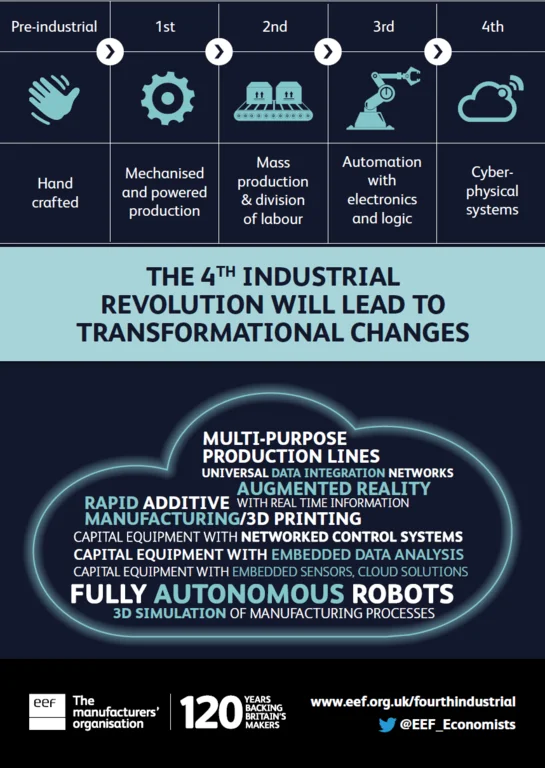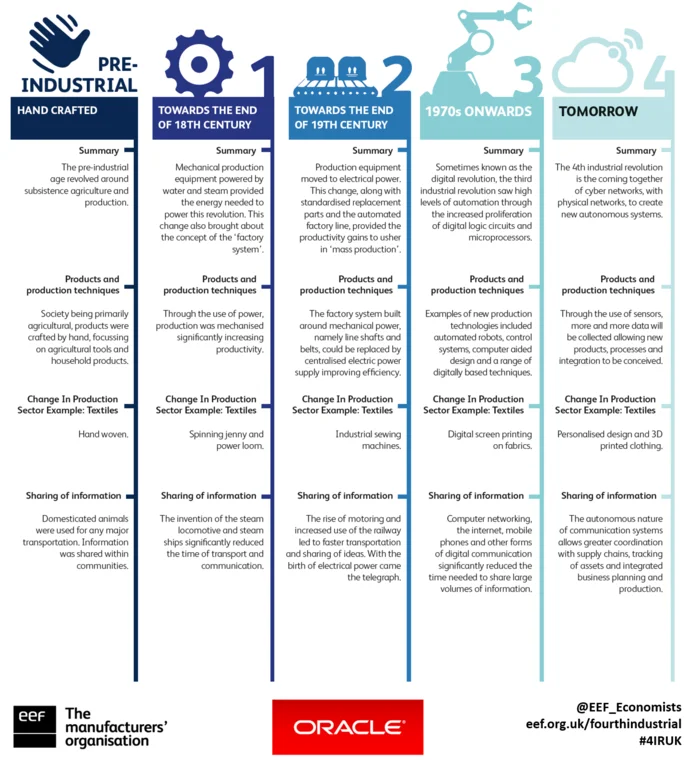The future of UK manufacturing
Regular readers of our blogs will know that the manufacturing sector is set for change as part of the 4th industrial revolution. This will see greater use of new digital technologies and techniques as part of the manufacturing process boosting productivity and the capture of higher value.

How manufacturing has changed and evolved
The image below shows how manufacturing has changed and evolved with each industrial revolution.

But what has been driving these changes?
Each industrial revolution is driven by a new economy wide paradigm for creating and capturing value. The most recent associated with the 4th, a focus on the delivery of experiences or outcomes, is no different.
This follows a trend that saw a shift from the extraction and processing of commodities, from commodities to making products, from products to providing services and now services to outcomes.
The manufacturing sector has been through this shift before with:
-
Milling or spinning to create commodities used in hand assembly
-
The use of machinery to transform the properties of these commodities to create newer products
-
The increasing value derived from servicing these products and
-
Now the greater value that can be captured through the delivery of guaranteed outcomes for customers (e.g. engine power by the hour).
With each of these transformations, the sector has become more productive - reducing the labour content of production while supporting the growth of associated parts of the economy such as services, warehousing, logistics etc.
What does the future hold for UK manufacturing?
The 4th industrial revolution is likely to result in one of two outcomes for manufacturing. Either a reduction in labour content and as a result the reshoring of low value items closer to the UK away from low labour cost centres (such as in the textiles sector).
Or it will see the boosting of existing high value production through greater meeting customer expectations.
Whatever the direction, the key message is that the UK needs to take advantage of these changes in the future as trying to play catch up will cost us more.
